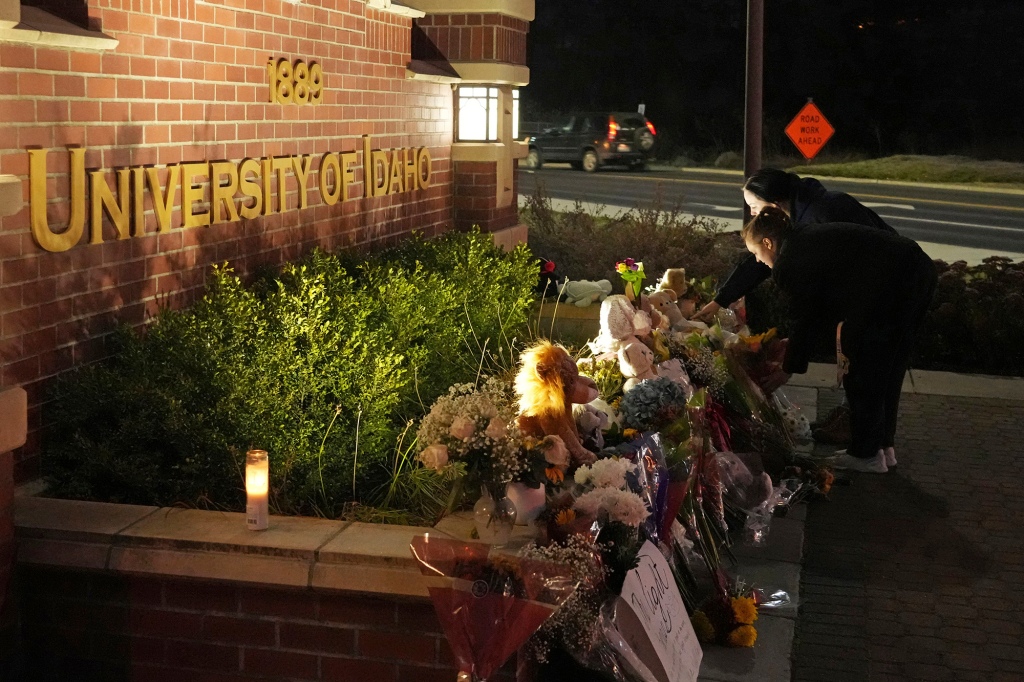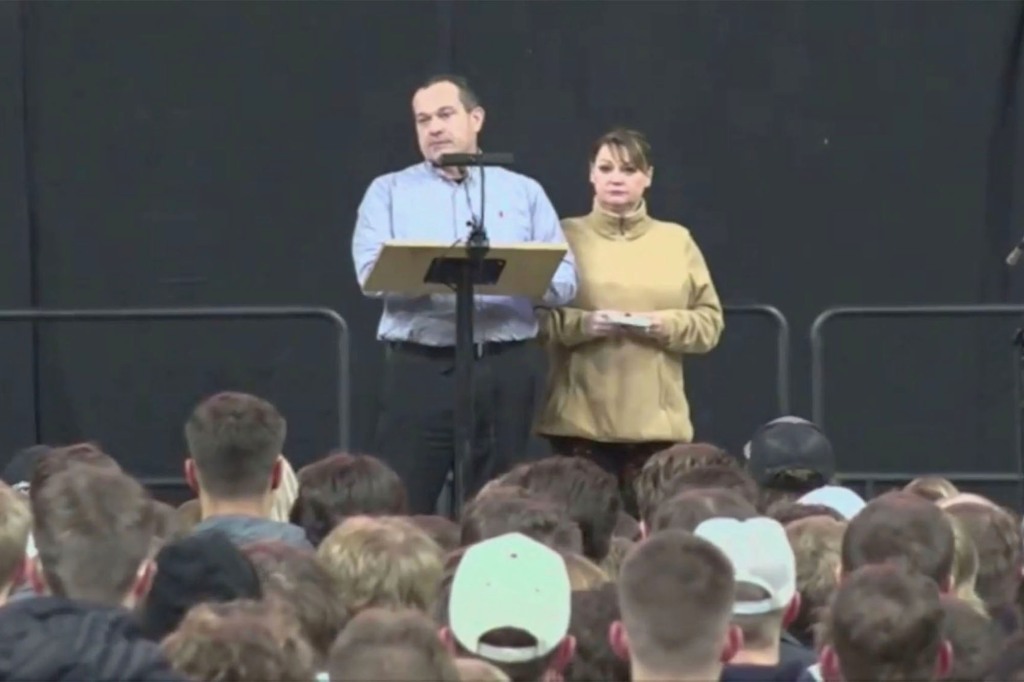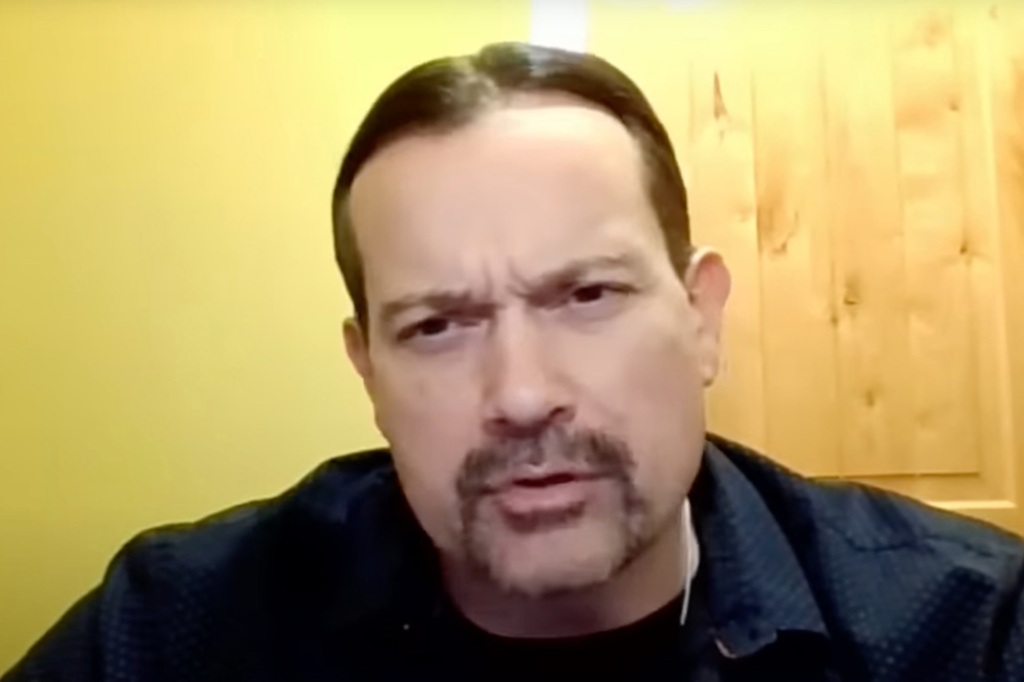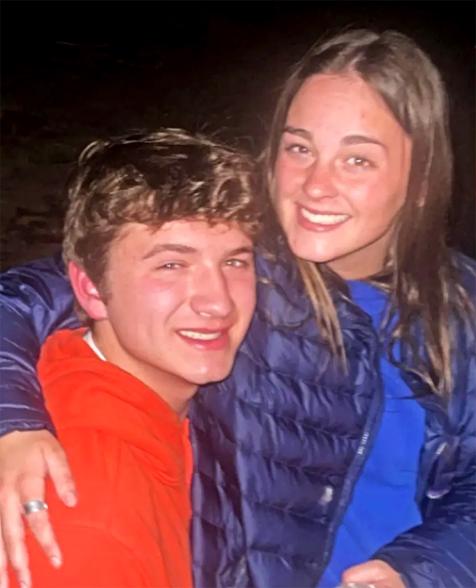Still no leads in University of Idaho murders
Three weeks after four University of Idaho students were found stabbed to death in their off-campus house in Moscow, investigators are struggling to nail down a suspect, leaving the victims’ loved ones frustrated.
“We’re angry. Anybody would be,” said Scott Laramie, stepfather of slain senior Madison Mogen, about the police’s lack of progress.
Moscow police previously boasted how they have 46 FBI agents on the case as well as 13 Idaho State Police investigators alongside their own team, all of whom are combing through evidence and leads.
Yet their daily updates to the parents have given little comfort the still-at-large killer will face justice any time soon.
“They update us every day. We asked them to check in with us whether they have anything or not,” Laramie said. “I’m just hoping they come up with something sooner than later. I just would like to have justice for these kids.”
Mogen, 21, was found dead along with her best friend Kaylee Goncalves, 21 and their friends Xana Kernodle, 20, and Kernodle’s boyfriend Ethan Chapin, 20, in the early hours of Nov. 13. Two housemates who were also home at the time were left unscathed.
Moscow police have not helped win the public’s confidence by sending out mixed messages publicly and giving evasive answers to even basic questions at press conferences.
After flip-flopping on whether the attack was “personal,” the only fact authorities have released is they believe a fixed-blade knife was used in the vicious stabbings, a weapon which they have not yet located.
Here’s the latest coverage on the brutal killings of four college friends:
Pete Yachmetz, a security consultant and former FBI agent, warned that the fickle flow of information isn’t helping.
“What is also happening now is the police by providing imprecise comments are creating an erosion of public confidence in them,” he told The Post last week.
“That’s unfortunate because in the end public confidence is needed to solve this crime.”

Moscow police confirmed last Thursday that over 113 pieces of physical evidence had been collected from the home, as well as over 4,000 crime scene photos and several 3D scans of the space.
Five vehicles, some of which belonged to the victims, were also towed away from the scene for further testing.
“To protect the investigation’s integrity, specific results”– such as fingerprints, hair, fiber, blood, and DNA evidence–“will not be released,” the department said in a statement.

Latah County Coroner Cathy Mabbutt told CNN she saw “lots of blood on the wall” when she arrived at the scene, and “some” of the victims had defensive wounds.
On Monday, police stated they were narrowing down the victims’ movements on the night of Nov. 12, when Kernodle and Chapin reportedly attended a party at the nearby Sigma Chi fraternity house from 9 p.m. until 1:45 a.m..
In a follow-up interview with Good Morning America on Tuesday, Aaron Snell, communications director for the Idaho State Police, said this time gap was “one of the larger areas that we don’t have a lot of information in.”
Mogen and Goncalves, who spent part of the night together at a local bar, were previously identified on video footage showing them stopping at a food truck on their way back to the house.

Snell also confirmed Goncalves’ dog, which was found in a separate room in the house, did not enter the crime scene.
“The dog did appear to have any evidence on it,” he told viewers. However, the police have admittted they still do not know if the dog was inside or out of the house during the slayings, which took place between 3am and 6am in the morning.
The police’s Monday statement also caused more confusion by contradicting claims by Goncalves’ father Steve Goncalves, who told NewsNation police had said his daughter’s injuries were more severe than the other victims’.
“With the active criminal investigation, law enforcement has not released additional facts to the family or the public,” the statement clarified.

The update came one day after Steve Goncalves lambasted the investigation’s efforts in an exclusive interview with The Post.
Referring to the Moscow police as “not exactly the most tech-savvy people,” Goncalves said “they’re just inexperienced— and I don’t want anyone making mistakes in my child’s case.”
Goncalves explained that he is now hiring private investigators to get the answers he needs.
“One of the private detectives I talked to has 50 years in the game,” he said, noting that one expert told him that police rely too much on DNA evidence.
Even if the killer’s DNA is left at the scene it could take some time to isolate, as the students’ house was known to be a place where they gathered with friends and the DNA of many people would likely be found in the property.
Still, Goncalves vowed to retracts his criticism if the original investigation yields a breakthrough.
“I’ll apologize. I’ll come out and say ‘These guys had amazing DNA or some evidence and good for them. I was giving them s–t and I take it back,’” he said.
“I’d love to be wrong and we can get this guy.”
Read the full article Here





